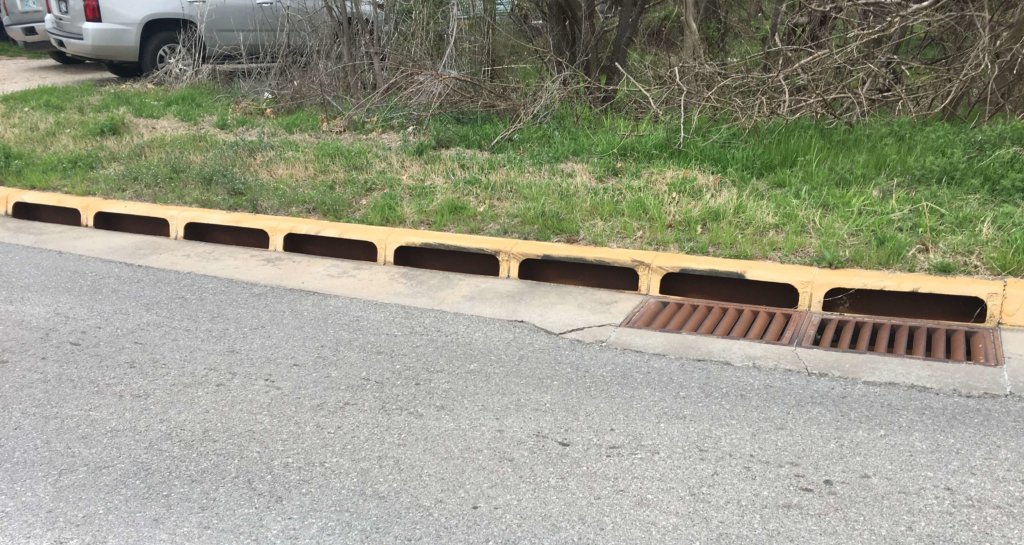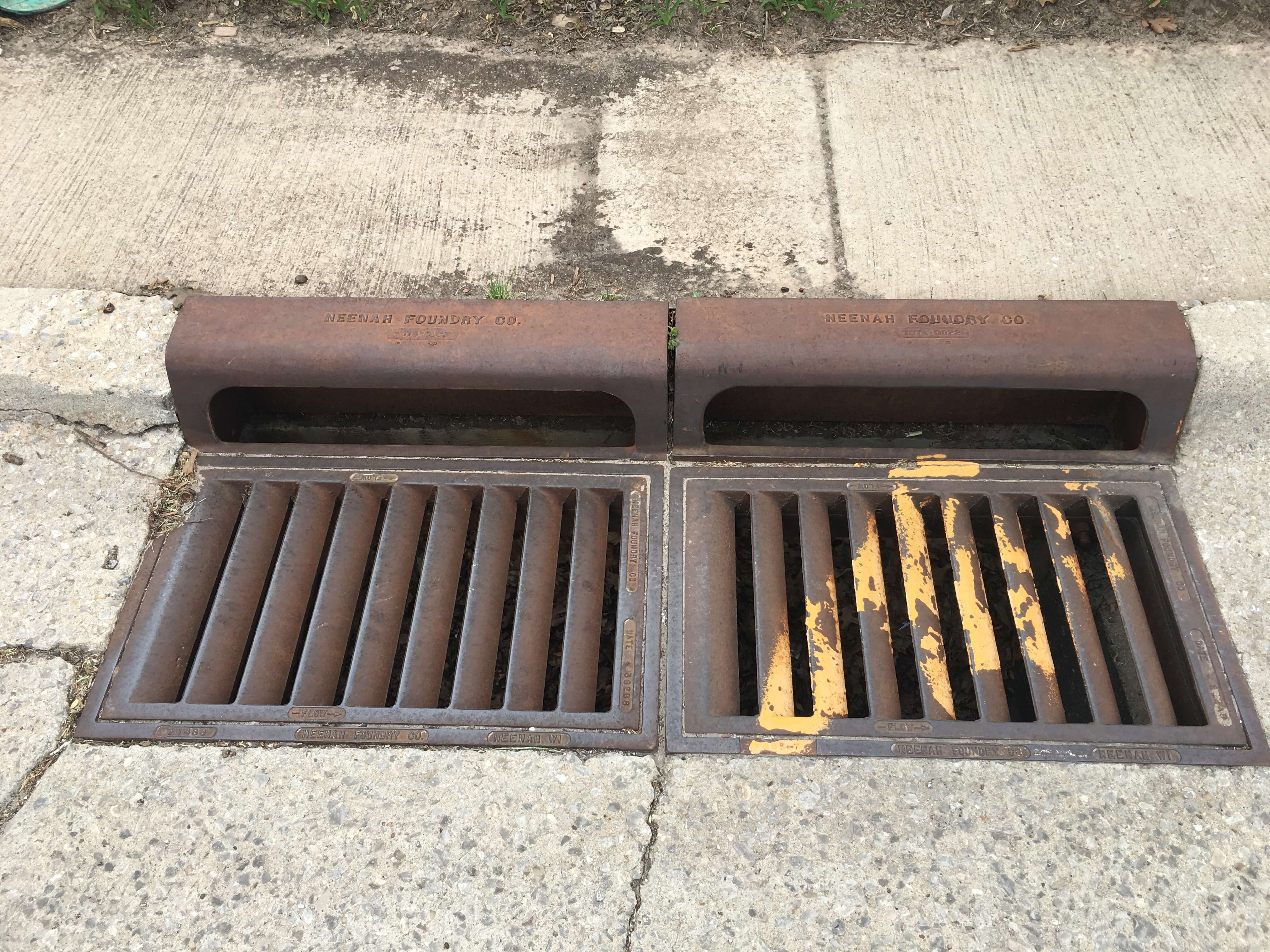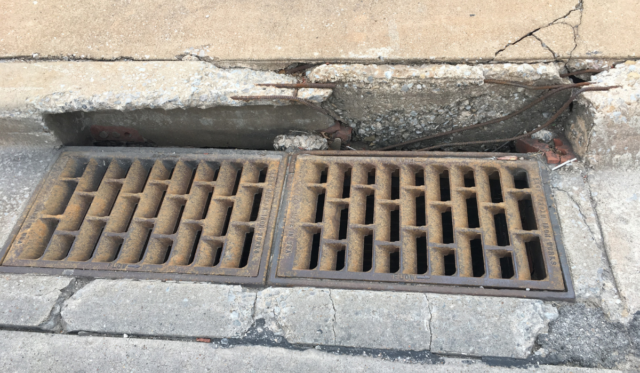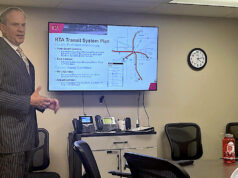Norman voters will head to the polls April 2 for a bond and utility election. Residents will vote on three propositions that address roads, storm drains and related infrastructure. Proposition 1 addresses roads. Propositions 2 and 3 bring stormwater to the city’s attention in the form of a bond project and a new utility, respectively.
“This has been something that has been talked about in Norman for several decades,” said Ward 7 Councilman Stephen Tyler Holman of the Propositions 2 and 3. “Norman is very well known for the flooding that goes on here.”
A similar proposition to create a Norman stormwater utility was soundly defeated in 2016. Afterwards, the city created the 15-member Stormwater Citizen Committee to develop a proposal more residents would agree on. The two propositions on the ballot are the result.
Proposition 2 addresses stormwater project ‘priorities’
“A city this size needs a plan that’s around $8 million, really. And we’re spending $3.2 (million) currently,” Holman said. “So instead of asking for one single utility rate to pay for everything that needs to be done, the citizens committee came up with the proposal to have a stormwater capital improvement bond package.”
RELATED
Norman’s Ward 3 to select a Council member April 2 by Trinity Cohee
The bond would fund 33 projects related to stormwater infrastructure, pulled from the city’s 2009 Storm Water Master Plan. The projects would span across Norman, covering every ward in an attempt to reduce flooding and improve water quality.
“These are the priorities,” he said.
If approved, the package would raise property taxes based on their market value. Holman said the city has about $60 million in bonding capacity at the current tax rate.
So what will the tax increase look like?
According to the Vision for Norman website, the tax would be “approximately $5.25 a month increase for average Norman property owner based on property’s market value of $150,000.” As the value rises, so does the tax.

Proposition 3 creates ‘brand new utility and brand new utility rate’
Proposition 3, the stormwater utility, would build on Proposition 2.
“We’ll have a separate stormwater utility proposal that would pay for the maintenance and the upkeep of the whole stormwater system and all these projects,” Holman said. “The utility would provide a stable and dedicated funding source to address flooding and stormwater-related issues in Norman. That also has a lot to do with water quality.”
Many Normanites complain about the taste of their water, and it’s known for its high levels of chromium-6. Holman has been a proponent of cleaner water for years and said the stormwater utility will attempt to remedy the water quality issue.
“The stormwater utility would help prevent pollution before it gets to the lake,” he said.
The vote on the utility is unusual, though, according to Holman. Were this proposed in another city, they wouldn’t have to put it on the ballot.
“Norman is the only city currently in the state of Oklahoma that requires a citywide, public vote to create a new utility or raise utility rates,” Holman said, noting the difficulty of convincing residents on such issues. “We’re trying to create a brand new utility and a brand new utility rate. Based on our first experience, it’s been pretty difficult.”
So what would this new utility cost look like?
“For residents, there are three tiers based on the square-footage of your home, at either $3, $6 or $9,” Holman said. “Low income residents that qualify would have a 30 percent reduction in their rate.”
This 30 percent reduction also applies to agricultural land owners.
Opposition: Proposals contain ‘lies and misinformation’
Patrick Rich opposes the stormwater plans. Rich owns a 47-acre farm in Norman and is the lead resource management planner for Oklahoma, Kansas and Texas at the federal Bureau of Land Management.
“The stormwater utility proposals are based on lies and misinformation,” Rich said.
Rich said he has a few problems with Propositions 2 and 3, but his main concern is how the City Council has been presenting the proposals.
“They do not legally bind the tax money to the purpose they claim to address,” he said. “And federal and state data clearly show that there is no municipal water quality issue at Lake Thunderbird, mostly because 95 percent of stormwater runoff originating from the EPA-designated MS4 zone discharges into the Canadian River south of Norman.”
MS4 stands for municipal separate storm sewer systems, which are where polluted stormwater ends up.
Rich said stormwater should be addressed, but he said the April 2 proposals are the wrong way to do it.
“There is an infrastructure and maintenance issue that will need to be addressed in the near future, but first Norman leadership needs to begin acting in a responsible and fiscally competent manner,” Rich said. “Water-related pollution should always be a concern for people, but lying to the electorate through fear mongering is not the way to gain support.”
Rich also said he believes the two stormwater proposals are financially irresponsible and poorly designed.
“Norman has a leadership problem and an organizational structure problem that perpetuates poor decision making on wasteful expenditures,” Rich said.

Proponent: It’s time to quit ‘playing catch-up’
Lee Hall, a proponent of the propositions, volunteers with Vote Yes for Norman to urge citizens to vote yes on the proposals.
“I feel like it’s really important that, as a community, we pass both of them at the same time because they were intended to complement one another,” Hall said.
She said she has followed the issue over the past few years and believes now is the time for action.
“We are way behind and playing catch-up all the time,” Hall said. “This is just a great opportunity for the community to pay their fair share and create a utility and have a bond to take care of infrastructure.”
Hall wants to pass the proposals now because the utility has failed in the past. She said the issues only get worse when left unaddressed.
“I feel personally like we really don’t have a choice on whether we pass these or not because the needs will still be there no matter how the vote turns out,” she said. “We would be ignoring the reality of how great our need is by not passing these.”
Hall has a lot of confidence these propositions will pass because she knows the Stormwater Citizen Committee has spent a significant period of time educating themselves and the city on the issue and finding a solution.
“They were pretty intentional about getting people that had opposed this the last time to try to figure out what the issues were and what the opposition was,” Hall said. “That citizen group worked through all of this with our city staff, and they were the ones that recommended to the City Council how to set up the propositions this time.”























